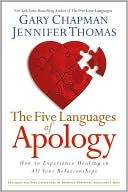Category Books
- Fiction Books & Literature
- Graphic Novels
- Horror
- Mystery & Crime
- Poetry
- Romance Books
- Science Fiction & Fantasy
- Thrillers
- Westerns
- Ages 0-2
- Ages 3-5
- Ages 6-8
- Ages 9-12
- Teens
- Children's Books
- African Americans
- Antiques & Collectibles
- Art, Architecture & Photography
- Bibles & Bible Studies
- Biography
- Business Books
- Christianity
- Computer Books & Technology Books
- Cookbooks, Food & Wine
- Crafts & Hobbies Books
- Education & Teaching
- Engineering
- Entertainment
- Foreign Languages
- Game Books
- Gay & Lesbian
- Health Books, Diet & Fitness Books
- History
- Home & Garden
- Humor Books
- Judaism & Judaica
- Law
- Medical Books
- New Age & Spirituality
- Nonfiction
- Parenting & Family
- Pets
- Philosophy
- Political Books & Current Events Books
- Psychology & Psychotherapy
- Reference
- Religion Books
- Science & Nature
- Self Improvement
- Sex & Relationships
- Social Sciences
- Sports & Adventure
- Study Guides & Test Prep
- Travel
- True Crime
- Weddings
- Women's Studies
Five Languages of Apology: How to Experience Healing in All Your Relationships »

Authors: Gary Chapman, Jennifer Thomas
ISBN-13: 9781881273790, ISBN-10: 1881273792
Format: Paperback
Publisher: Moody Publishers
Date Published: January 2008
Edition: (Non-applicable)
Author Biography: Gary Chapman
Gary Chapman, PhD, is the author of the New York Times bestselling The Five Love Languages. With over 30 years of counseling experience, he has the uncanny ability to hold a mirror up to human behavior, showing readers not just where they go wrong, but also how to grow and move forward. Dr. Chapman holds BA and MA degrees in anthropology from Wheaton College and Wake Forest University, respectively, MRE and PhD degrees from Southwestern Baptist Theological Seminary, and has completed postgraduate work at the University of North Carolina and Duke University.
Jennifer Thomas, PhD, is a psychologist in Winston-Salem, North Carolina. She counsels individuals and couples on a wide variety of issues from communication to trauma recovery and spiritual healing. Dr. Thomas holds a BA degree in psychology with High Distinction from the University of Virginia and MA and PhD degrees in clinical psychology from the University of Maryland.
Book Synopsis
You will learn how to recognize your own primary apology language while speaking the languages of those you love. Understanding and applying the five languages of an apology will greatly enhance all of your relationships.
Publishers Weekly
Chapman, author of the bestselling The Five Love Languages, teams up with psychologist Thomas for thoughtful dissection of another tricky subject. Chapman and Thomas choose to tackle the apology because, as with love, understanding it is essential for developing, maintaining and repairing relationships. Apology, however, covers a much broader scope, applying to all varieties of relationships, from the deeply personal connection between intimate partners to the formal relationships between nations. Chapman and Thomas's basic observation that we don't all agree on what constitutes a sincere apology is perhaps not surprising, but it may, as they show, help couples who can't resolve arguments because their apologies aren't accepted. The authors stress that you need to learn the "language" of the person you are apologizing to: for one person, it may be expressing regret, while for another it's accepting responsibility or making restitution. Especially useful is the chapter that helps readers learn which language of apology feels most sincere to them. Chapman and Thomas are most apt when they seek to repair relationships not with large ideas but with simple basics that are too often taken for granted. (Sept.) Copyright 2006 Reed Business Information.
Table of Contents
Subjects
 Psychology
Psychology  Psychology - Theory, History & Research
Psychology - Theory, History & ResearchNonfiction
 Social Sciences
Social Sciences  Sociology
SociologyNonfiction
 Sociology
Sociology  Sociology - General & Miscellaneous
Sociology - General & MiscellaneousPsychology & Psychotherapy
 Psychology - Theory, History & Research
Psychology - Theory, History & Research  Social Psychology
Social PsychologyReference
 Etiquette
Etiquette  Apologizing -> Popular works
Apologizing -> Popular worksScience & Nature
 Social Sciences
Social Sciences  Sociology
SociologySelf Improvement
 Relationships
Relationships  Social Interactions in Relationships
Social Interactions in RelationshipsSelf Improvement
 See All
See All  Relationships
RelationshipsSocial Sciences
 Sociology
Sociology  Sociology - General & Miscellaneous
Sociology - General & MiscellaneousMedical Books
 Psychology & Psychotherapy
Psychology & Psychotherapy  Psychology - Theory, History & Research
Psychology - Theory, History & ResearchNonfiction
 Reference
Reference  Etiquette
Etiquette
